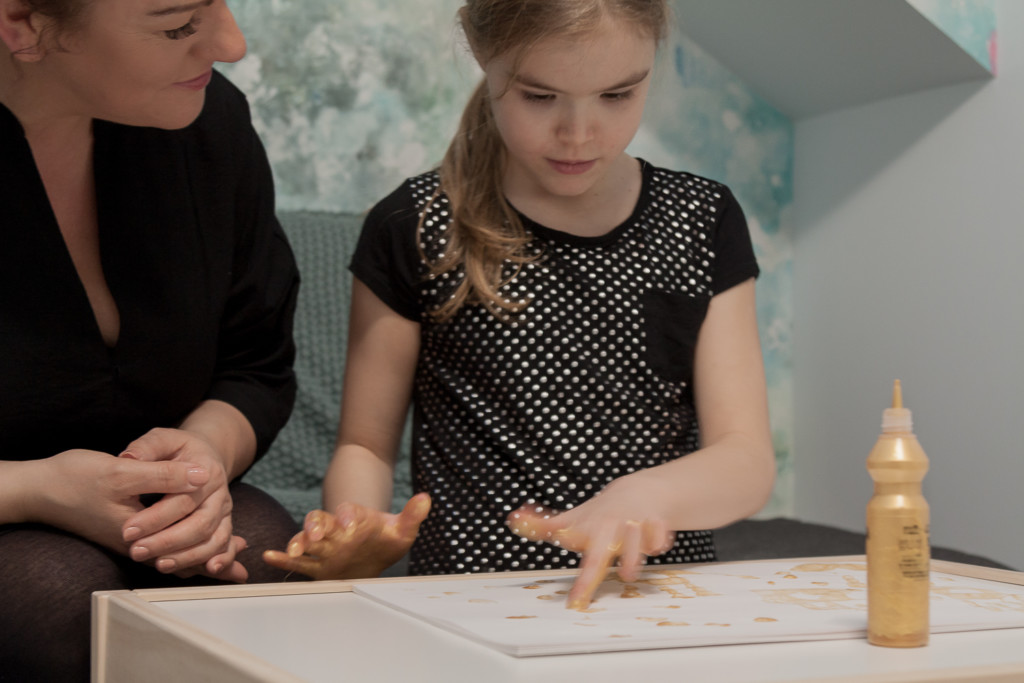Children and young people can find it difficult to verbalise the things that are negatively affecting their well-being and can struggle to express their feelings and emotions in ways that are helpful to them. Play is the child’s natural medium for expression and is essential for children to develop physically, socially, emotionally and cognitively.
Play therapy is an effective and well-established therapy. As a foundation for practice, I use an integrative approach by blending a variety of play and creative arts techniques and treatment models which can help alleviate children’s psychological and emotional conditions that prevent them from realising their potential.

Play therapy provides children with the opportunity to play out their experiences and to express their feelings verbally and non-verbally and to make sense of difficult and traumatic life experiences. Play allows a safe psychological distance from a child’s difficulties and transmits and communicates the child’s unconscious experiences.
During sessions, a child can express themselves through using the Play Therapy Tool Kit, which consists of various elements including: Sand Tray, Art, Music, Creative Visualisation, Therapeutic stories, Movement, Drama, Puppets, Masks and Clay. Using the Play Therapy tool kit can offer a safe way of giving distance to process difficult thoughts and feelings and allows the child to express their thoughts, feelings, situation or history.
The therapist reflects-back to the child observations of what is happening during the session, if this is felt to be appropriate and helpful. As a result, they can develop a greater understanding of themselves and their world. Play therapy helps empower children and supports them to resolve inner conflicts, enabling them to cope better with the difficulties in their lives and develop new patterns of behaviour and thinking.
Above all the Play Therapist aims to build a warm, trusting relationship with the child as early as possible and create a nurturing environment where the child feels safe and secure; enabling them to express their thoughts and feelings and providing the conditions necessary to facilitate positive change. The experience of a secure, therapeutic relationship with an empathic and accepting therapist, supports the child’s ability to form healthy attachments with other people.
OTHER WAYS PLAY THERAPY CAN HELP
- Provides A Safe Space For Children To Express Their Thoughts & Feelings
- Facilitates Development Of Confidence & Self Esteem
- Supports Emotional Healing & Growth
- Supports Ability To Form Healthy Relationships
- Supports Ability To Trust Themselves And Others
- Fosters Imagination And Creativity
- Developing Enhanced Understanding Of Feelings
- Helps Develop The Ability To Practice Social Skills
- Increased Opportunity To Express Themselves In Healthy Ways
- Assists Children In Making Decisions And In Accepting Responsibility For These
This includes: Sand Tray Therapy, Art, Music, Creative Visualisation, Therapeutic stories, Movement, Drama, Puppets, Masks and Clay
This could be at my therapy space in BS1 or at the child’s school or another appropriate therapy space.
This means children choose what they play with and the therapist follows their lead, engaging in the child’s play only when invited. However, sometimes the therapist might feel it could be helpful to the child to use a more directive approach such as offering a therapeutic story or creative visualisation.
